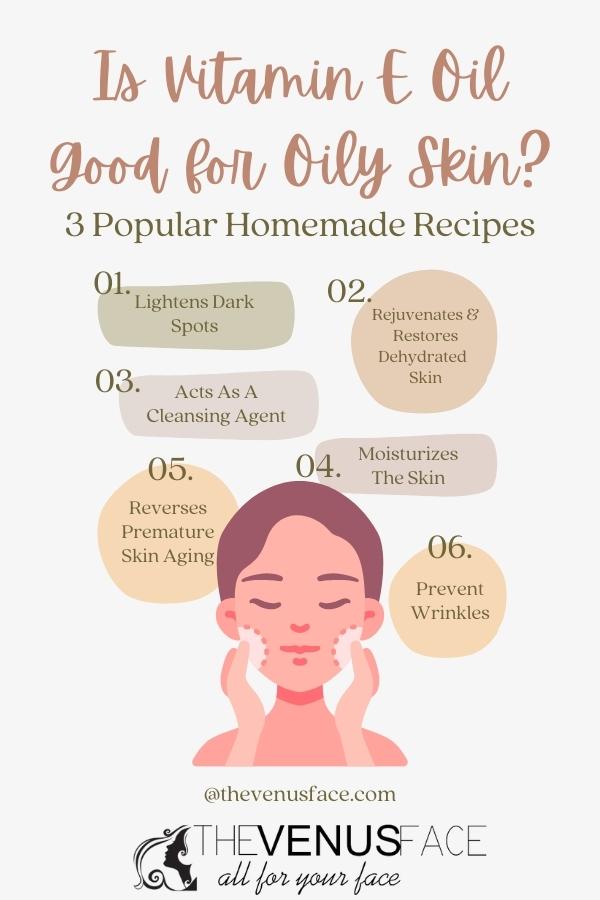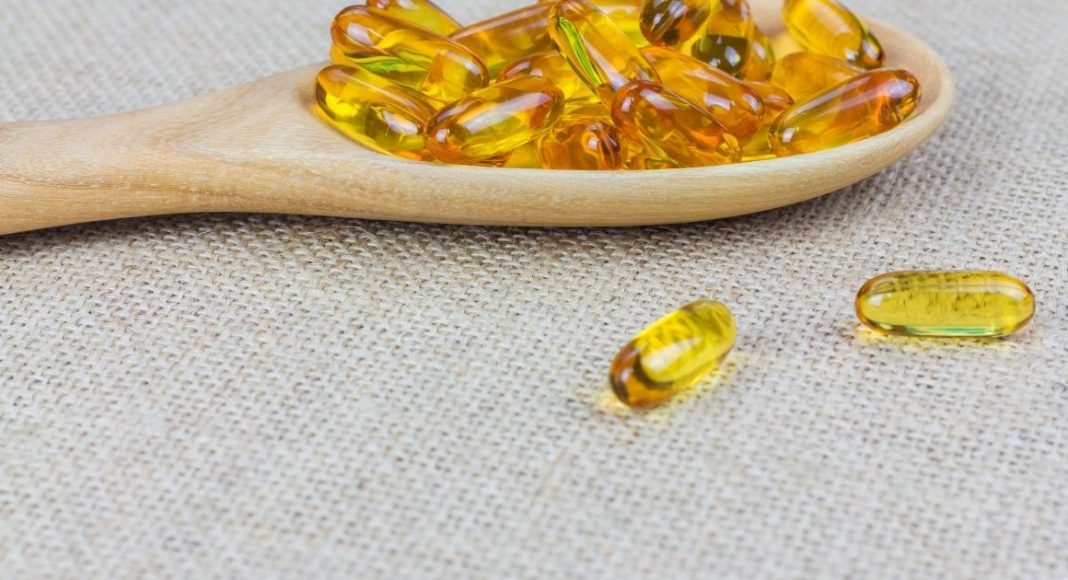Is vitamin E oil good for oily skin? Learn more in this post.
Oily skin is a common skin type that is caused by an overproduction of sebum, the natural oil that protects and lubricates the skin. For people with greasy faces, excess sebum can lead to acne, blackheads, and other blemishes. It can also make makeup and other skincare products wear off more quickly.
With all these uncomfortable, and potentially embarrassing, symptoms, oily skin can make a person feel self-conscious about their appearance. In order to battle this common skin type and avoid these problems, people usually use either store-bought skincare products or DIY remedies.
People with greasy skin have a couple of choices when it comes to skincare products that they can use to treat their symptoms. They can go for a medicated acne cream, which is full of chemicals that may dry out the skin and eventually lead to more oil production if using the wrong products. Or they can turn to natural ingredients, such as tea tree oil or lemon juice, in order to battle their symptoms without drying out the skin even more after using the product.
And then there is vitamin E, which has been known to be a godsend oil for skincare products. Ever since this vitamin became a trending topic in the health and wellness world, it has been used in all sorts of products that treat everything from wrinkles to dark circles under the eyes.
The question that people are asking themselves is this: is vitamin E oil good for oily skin? Or is vitamin E not as awesome as people think it is?

Is vitamin E bad for oily skin?
While there are many benefits of vitamin E for the skin, it’s recommended that people with oily skin shouldn’t apply pure vitamin E directly to their skin. This vitamin in pure form is bad for greasy skin because it is very thick and oily in nature, which can cause acne and clog your pores. Therefore, it’s better suited for dry skin, not oily skin.
More: Is Vitamin C Good for Oily Skin?
Can we use vitamin E oil on oily skin?
However, just because pure vitamin E is not recommended, doesn’t mean that oily skin people cannot use it. This oil is a very common ingredient in a lot of skincare products, and it works to treat a variety of skin problems. Instead of using it on its own, people with greasy faces should look for products that contain vitamin E oil, such as moisturizers, BB creams, cleansers…
Another use of this vitamin oil is to mix it with other ingredients, such as tea tree oil and rosehip. This mixture will help the benefits of this vitamin to work faster and more efficiently on your skin.
Best vitamin E oil for the skin
How to use vitamin E oil for oily skin?
As said above, you should use vitamin E oil as an ingredient rather than applying it directly to your skin. Luckily, this blog is all about oily skin, thus there are some helpful DIY recipes that you can use:
- DIY Face Moisturizer: this recipe is simple and requires only 3 ingredients to make, it helps with acne, eradicates the bacteria, and increases moisture for the skin.
- DIY Face Serum: this remedy requires 5 different oils to make but the effect is guaranteed to be impressive.
- DIY Night Cream: this cream offers an anti-aging effect, it diminishes wrinkles and fine lines, giving the skin a soft and hydrated feel.
Another easy option is to buy skincare products that contain this vitamin oil, this option offers the benefits of it without having to go through all the DIY steps. However, make sure that you buy products that are suitable for greasy skin and that don’t clog pores (non-comedogenic).
Vitamin E benefits for skin
It can be used topically or orally, and the benefits are many, some typical examples:
- Keeping skin moisturized
- Preventing skin cancer
- Diminishing scars, fine lines, and wrinkles
- Helping with itchy skin
Does vitamin e oil clog pores?
It is important to note that vitamin e oil has a comedogenic rating of 2, which means that it can clog pores. While this may not be a problem for those with healthy skin, those with oily acne-prone skin may want to avoid using products that contain vitamin e oil directly. Instead, using it as an ingredient or mixing it with a moisturizer is recommended.
Final thought
Just like any other skincare product or treatment, there are some things you should know about using vitamin E on your face. Here’s what you need to know about using this ingredient as a natural remedy for treating your skin problems.
- Firstly, never use pure vitamin E on your skin. It will only make your face worse.
- Secondly, this vitamin may be suitable for you, but that doesn’t mean that it’s the best option for you. Skin reacts differently to different products and treatments, so even if it works wonders for someone else, it might not do the same for you.
- Lastly, don’t forget to read product labels carefully before using them on your skin! There are many skincare products with misleading ingredients or hidden nasties inside the formula. Some oils might sound natural enough to use directly on your skin, but they can still cause irritation and allergic reactions. Thus, patch test first, waits at least 24 hours to see if there are any hives or redness on your skin. If everything is okay, go ahead and use the product.
If you take all these things into account when using vitamin E oil on your skin, you should be able to get the best results for your oily skin.
References:





